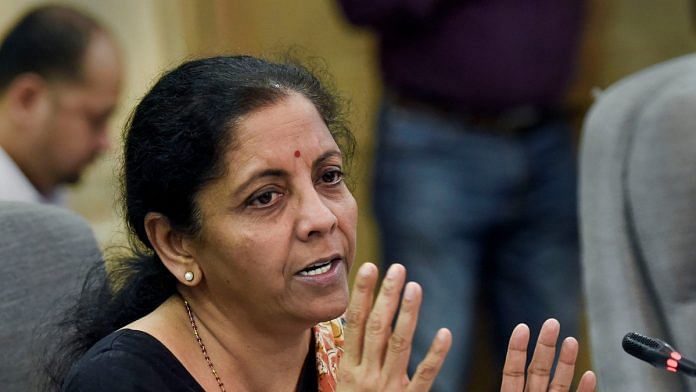New Delhi: Various sections of society will be looking at Union Budget 2020 to gauge the benefits accruing to them, but the key issue is going to be the ‘direction’ of the economy.
Before one talks about the direction of the economy, it is important to underline the fact that the present government is facing an acute resource constraint. So, allocations to many programmes and sectors may remain less than desirable.
But that is understandable, and an increased efficiency in the implementation of schemes may help address this deficiency to some extent, although the gaps will still remain.
It may be mentioned here that organisations backed by the RSS, such as Laghu Udyog Bharati (represents small and medium enterprises), Bharatiya Kisan Sangh (represents farmers), Bharatiya Mazdoor Sangh (represents workers/labour) and Swadeshi Jagaran Manch (works for promotion of Indian players over foreign interests in the economic arena), have already made representations to the union government regarding their expectations from the budget, and this could have some impact in terms of the direction of the economy.
The direction of the economy is to be judged by some of the parameters mentioned below.
The first and foremost parameter is how the government will handle domestic enterprises vis-a-vis foreign enterprises. The focus should be on promoting domestic enterprises. If that needs to be done through protective tariffs, then so be it. The government shouldn’t budge from this stand even if it is called protectionist in some quarters.
The ‘swadeshi’ model of economy should be promoted. The small and cottage industries should be protected and promoted as they form the backbone of the Indian economy and have been neglected by successive governments after liberalisation.
The second parameter is a sustainable and debt-free farming model. The policy framework that the Modi government inherited from the past needs to be changed when it comes to the agriculture sector.
There is a need to promote organic farming in a big way. The only way to sustain Indian agriculture is to reintroduce traditional knowledge of farming and encourage the practice of organic farming. Also, the industries allied to agriculture should become an integral part of the farm sector.
Use of information technology and ownership of the data being generated in India at individual as well as collective levels are two more key areas that will set the direction of the economy.
There is an urgent need to reverse the ‘data colonisation’ faced by India. Data and information technology are two of the most strategic assets. India needs to tailor information technology in a manner that it doesn’t disrupt society’s value system.
The government is expected to take some steps that will ensure the West doesn’t have monopoly over data. In the long run, India needs to develop an indigenous ecosystem for retaining control over important data in all spheres of society.
Also read: These are the 5 key factors to watch in Nirmala Sitharaman’s second Budget tomorrow
Reshaping the Indian market
Another important parameter is how the ‘Indian market’ is going to be reshaped.
In that context, one of the key issues is to handle the e-commerce industry. Foreign players now have a majority stake in most of the big e-commerce players, so they should be treated as foreign enterprises and not domestic ones.
The expected backend integration of the retail sector hasn’t happened with these e-commerce giants. Offline business has been affected and small and medium enterprises are also taking a big hit on account of e-commerce.
A course correction is required in this regard to provide a level-playing field to Indian retailers at all levels. Suggestions made to the government in this regard include levying a turnover tax on e-commerce players. Among other things, that will help the government generate substantial additional revenue.
Thus, overall, the economy is expected to move in a direction where Indian interests in the domestic arena are well protected and there is a thrust on developing new ecosystems that, based on a combination of traditional and modern knowledge, should be able to ensure that the Indian economy is driven less by consumerism and more by the motive of sustainable development.
(The author is CEO of RSS-affiliated thinktank Indraprastha Vishwa Samvad Kendra. The views expressed are personal)
Also read: Economic Survey 2020 projects 6-6.5% growth for Indian economy in next fiscal




There is no legitimate think tank that thinks in India.
All i can do is laugh at situation of RSS and its affiliates. Plus seeing the past articles of this author all i can say is RSS is no more the king. They are just ground workers of Modi and Shah.